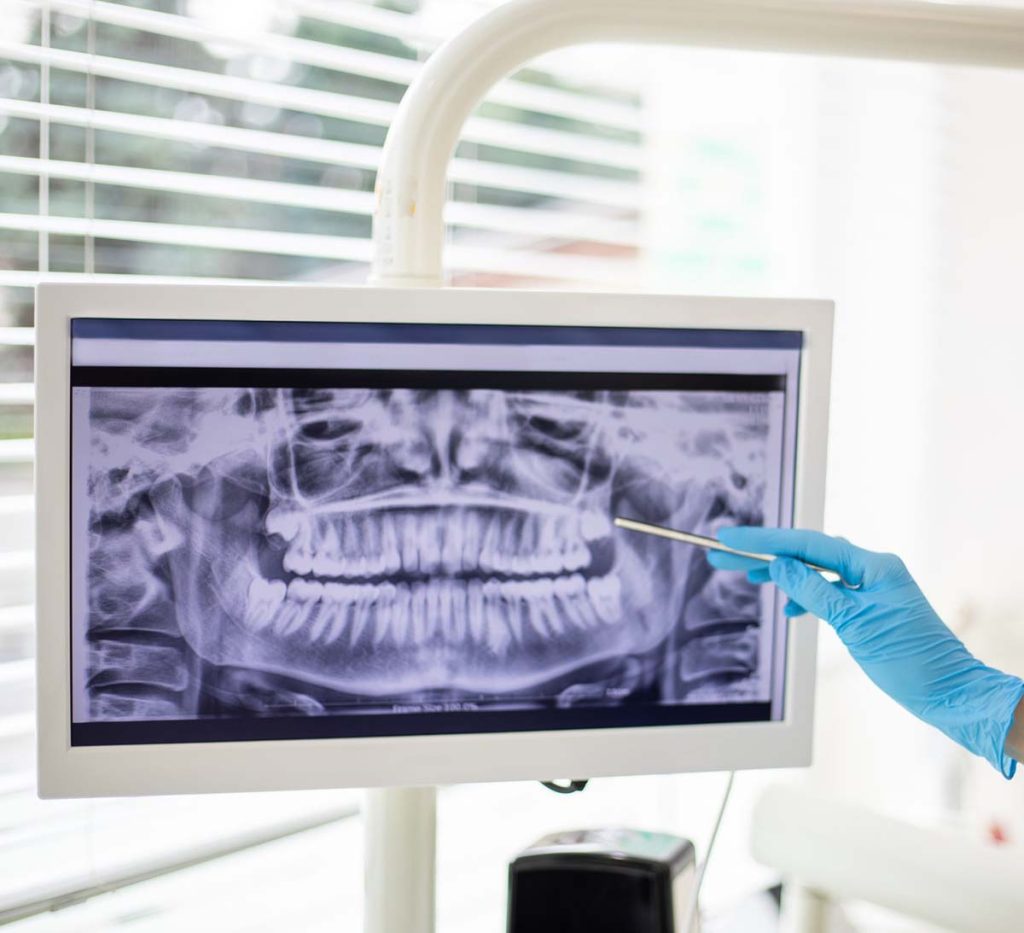Dental X-rays expose patients to very little radiation and are considered safe. Lead aprons and high-speed film guarantee safety and reduce radiation levels.
At The Dental Anesthesia Center, we take several precautions to minimize radiation exposure during a dental X-ray. The benefits of X-rays in diagnosing and treating oral health problems far outweigh the potential risks.
If you have any questions or concerns regarding the safety of our X-rays, talk to Dr. Hoffmann, Dr. Thoms, or Dr. Behl at your next appointment.

How Do Dental X-Rays Work?
Dental X-rays are an essential diagnostic tool used in dentistry to identify oral health problems not visible during a routine dental exam. X-rays use electromagnetic radiation to create images of the teeth, gums, and bone structure in the mouth, which can help dentists detect and treat oral health issues early on. However, many people are concerned about the safety of dental X-rays and the potential risks associated with radiation exposure.
Are They Safe?
Firstly, it is essential to understand that dental X-rays use very low radiation levels. The amount of radiation exposure from a dental X-ray is typically less than what you receive from natural radiation sources in the environment daily. A single digital dental X-ray exposes a patient to approximately 0.005 millisieverts of radiation, less than the amount of radiation exposure from a short airplane flight or spending a day outside in the sun.
Furthermore, dentists take several precautions to minimize radiation exposure during a dental X-ray. One of these precautions is using lead aprons and thyroid collars, which can shield the body from radiation. Dentists also use digital X-ray machines, which emit less radiation than traditional X-ray machines, and they take only the necessary X-rays required for diagnosis.
The frequency of dental X-rays also depends on the patient’s oral health needs. Patients with a history of oral health problems or at a higher risk of developing oral health issues may require more frequent X-rays. However, for most people, dental X-rays are usually taken every 1-2 years.
Overall, the benefits of dental X-rays in diagnosing and treating oral health problems far outweigh the potential risks associated with radiation exposure. Dental X-rays can help detect cavities, gum disease, oral infections, and other oral health issues that may not be visible during a routine exam. By catching these problems early, dentists can provide appropriate treatment and prevent more serious oral health issues from developing.
Talk to Your Dentist
When you come in for your next dental appointment, don’t hesitate to ask your dentist questions about your oral health and safety. We work hard to make you feel at ease by providing exceptional patient care in a relaxed, convenient atmosphere.
Call Us Today
The first two board-certified Dentist Anesthesiologists in the state of Missouri.
